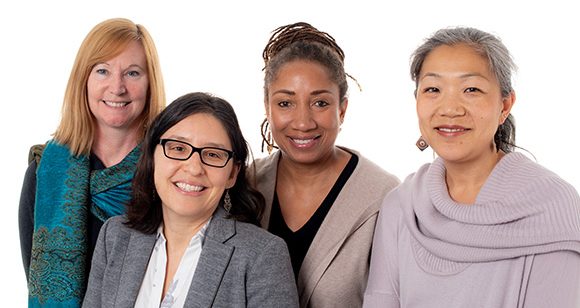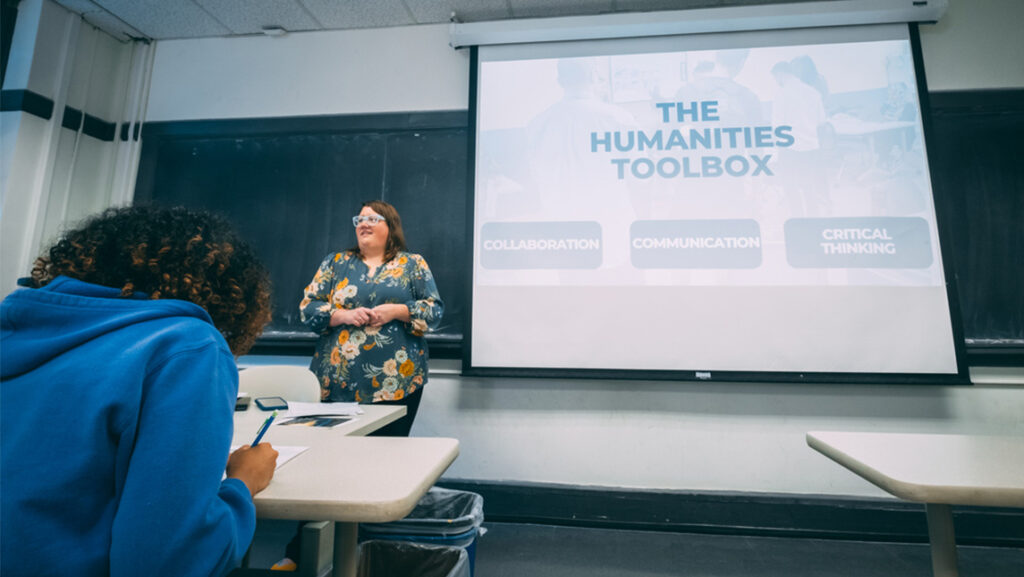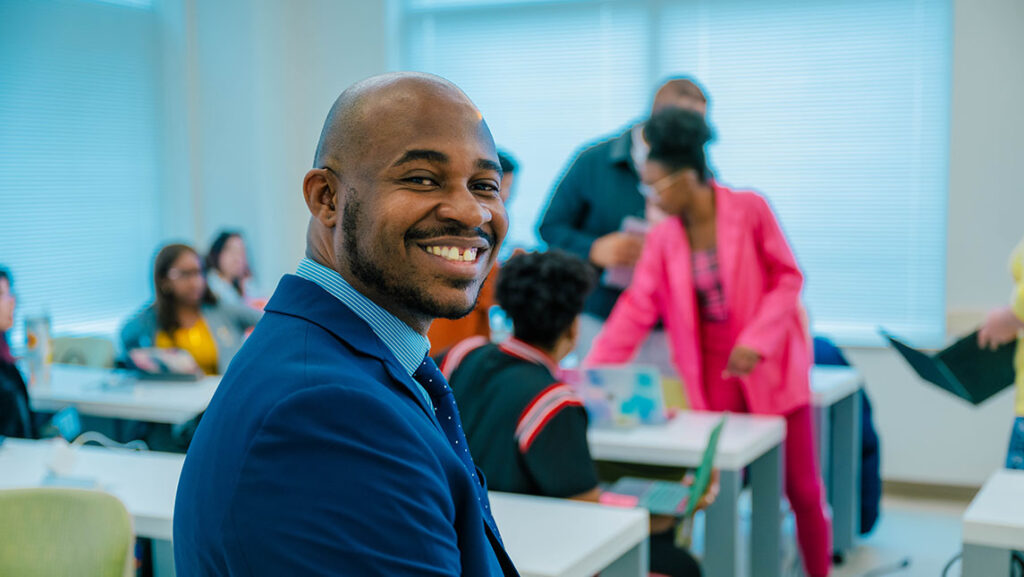Racism has frequently been characterized as a virus – one that, despite efforts, continues to spread and plague society.
It’s an infection that hits early in life, with young children experiencing discrimination in elementary schools, daycares, parks, and playgrounds.
Research shows that the consequences are serious, and often they’re long-term.
“Very early on, kids begin to internalize these messages, which can affect mental health and academic success down the road,” explains Dr. Gabriela Livas Stein, associate professor of psychology at UNC Greensboro.
To help counter negative messages and improve outcomes for children of color, Stein has teamed up with UNCG colleagues Dr. Stephanie Irby Coard (Human Development and Family Studies) and Dr. Laura Gonzalez (Teacher Education and Higher Education), along with Wake Forest University’s Dr. Lisa Kiang (Psychology), to create a program that helps parents of color talk with their children about racism and discrimination.
“One Talk at a Time,” or “Una plática a la vez” in Spanish, is an online video series that gives parents the toolkit they need to have these difficult conversations with their children. The program is funded by UNCG Strategic Seed Grants.
“We wanted something that could easily be consumed as a video on your smartphone,” Stein says.
One Talk at a Time is based on current research in the field, as well as focus groups conducted by the research team. While the program is designed for all people of color in the United States, it includes specific videos for Latino and Asian American immigrant families, as well as Black American families.
When should parents begin to have these conversations with their children?
“There’s no 100 percent right answer, but we do know that kids start experiencing some of these racial and cultural differences in early elementary school,” Stein says. “You want to start having conversations that are appropriate for their development.”
First, One Talk at a Time recommends that parents focus on cultural pride messages. Research shows that kids who feel more connected to their cultural group and have a sense of pride have better outcomes academically and psychologically.
Second, parents should provide their children with something they can do as a response to the racism and discrimination they encounter.
“Often, when there is an incident, it’s awkward and uncomfortable, and children may leave upset and angry, wishing they had said something,” Stein says. “We want to help our kids recognize these situations and what they can do in the moment.”
For example, if a child is made fun of at school for speaking Spanish, they can respond by sharing how proud they are to be part of the Latino community and speak two languages.
Latino and Asian immigrants and Black Americans tend to approach issues of racism and discrimination differently. Often, immigrants may try to ignore it or “shake it off” instead of proactively countering messages.
For Black Americans, who have endured racism in the United States for centuries, having these challenging conversations has always been a part of raising children.
“This is something we’ve been doing forever,” says Coard. “Black families are doing something, but they aren’t necessarily doing it in a way that’s developmentally appropriate. Parents are struggling with how to balance messages that are real, but still give hope and provide a sense of empowerment.”
According to Coard, this kind of community-engaged work is so important because the “societal landscape demands it.”
“We’re at a tumultuous time in terms of race relations,” she says. “Parents need tools, because it’s not easy. I see this program as a model that could be used anywhere.”
The research team is now beginning to test the effectiveness of the program, and plan to make the videos available to the broader public in the future. Families interested in participating in an upcoming research trial to test the feasibility of the video series are invited to contact Stein at glstein@uncg.edu.
To learn more and to watch a video introduction to the program, visit caminoslab.org/onetalk.
Story by Alyssa Bedrosian, University Communications
Photography by Martin W. Kane, University Communications



